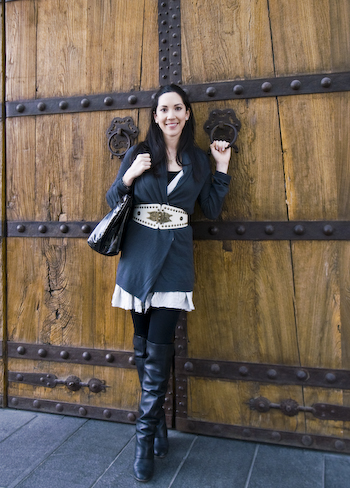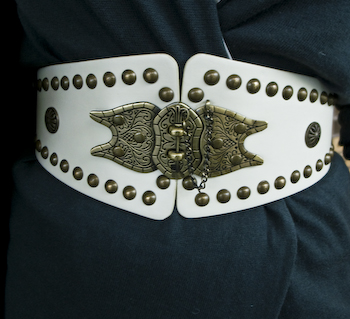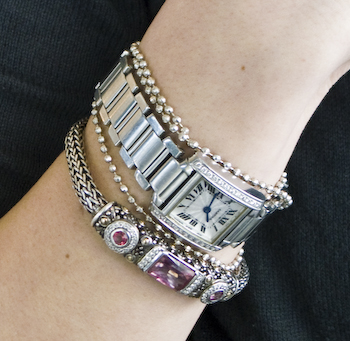She’s a fan of The Opposite House. A Taiwanese, Polish, Irish mix born in Taipei, Jessica has lived in Germany, South Korea, England, Hong Kong, LA, Boston, and Shanghai. She first came to Shanghai in 2003 as an intern at a luxury hotel. In 2009, she became the main PR for Theory. I asked her a few questions about style and living in China.
Jessica Harkiewicz是个汉æ—,波兰,爱尔兰的混血。她在å°åŒ—出生,在 德国,韩国,英国,香港,美国,上海都生活过。她是时尚å“牌Theory在ä¸å›½çš„公关。她2003å¹´æ¥åˆ°ä¸Šæµ·ï¼ŒçŽ°åœ¨ç»å¸¸æ¥åŒ—京出差。
NF: You are a Hong Konger living in the Mainland. Can you name one thing that is better about living here (in comparison to HK) and one thing that is worse?
JH: I’m not sure if I would consider myself completely a “Hong Konger” as I grew up in seven countries and Hong Kong just happened to be where I spent the most time. But when it comes to comparing Hong Kong and China, I enjoy the excitement and unpredictability of living in China – it can be a bit raw at times, but it’s definitely an adventure. I feel lucky to be able to participate in a community that is evolving so quickly you can almost feel the changes happening around you. I have never experienced that in any other city in which I lived before. The one thing I prefer about Hong Kong is the beauty of the city and how convenient it is to get away and be in nature. I love seeing tropical birds flying around and the trees, mountains and waters of Hong Kong. It is so easy to be in the hustle and bustle of Central, then 10 minutes later be able to walk along some path that leads up to the peak and not see a soul.
NF: You switched from hotels to fashion. In what ways is your life more glamorous now?
JH: I get to travel a lot more now that I am working in fashion, there are a few more parties that I get to attend to, and I have more opportunities to dress up and play with clothing and accessories.
NF: There must be some unique challenges you face in marketing to mainland Chinese. What is some advice you might give to other foreigner brands trying to develop here?
JH: As a foreigner working for a foreign brand it can be very easy to live in a little bubble and avoid speaking Chinese, but it is very important to immerse yourself as much as possible in the local Chinese culture and language and to explore cities beyond Beijing and Shanghai to really understand the needs, dreams and lifestyle of the Chinese consumer.
NF: Do Beijing and Shanghai fashion customers have any obvious differences in the way they dress, consumer, or think?
JH: Shanghaiers seem a little more fashion forward and tend to dress up more, while Beijinger’s seem to intellectualize their fashion choices, but I haven’t spend enough time in Beijing to really compare the two.
NF: Any style advice for Beijing girls?
JH: Don’t be afraid to mix and match and don’t worry about looking to your friends for approval. Start with a foundation of timeless investment pieces that are versatile and easy to wear made of good fabrics and that feel really good when worn. Then each season add a few trend pieces or accessories to freshen up your look to stay fashion forward. Be confidant in what you’re wearing and everyone will notice. Create your worn style identity, that is what is so fun about fashion!
NF: What are your favorite hotels, restaurants, bars, galleries, etc. in Beijing?
JH: I haven’t had many opportunities to explore Beijing in the past but hopefully that will change with our Theory flagship opening in The Village at Sanlitun this May. I did love the rooms at the Opposite House though which are so light, airy and spacious you feel like you’re in a little oasis.
NF:è¯´ä¸€ä¸ªåœ¨å¤§é™†è®©ä½ å¼€å¿ƒçš„äº‹æƒ…å’Œä¸€ä¸ªè®©ä½ æ›´çƒ¦çš„äº‹æƒ…?
JH: 大陆很çƒé—¹-æ¯å¤©éƒ½æ˜¯ä¸ªå†’险。我觉得很è£å¹¸èƒ½å‚与一个 å˜åŒ–怎么快的国家。以å‰éƒ½æ²¡æœ‰æ€Žä¹ˆå…´å¥‹è¿‡ã€‚ åªæœ‰ä¸€ç‚¹æ˜¯åœ¨å¤§é™†åŸŽå¸‚生活好åƒç¦»å¤§è‡ªç„¶ç‰¹åˆ«è¿œã€‚在这方é¢é¦™æ¸¯å¥½å¾ˆå¤šã€‚
NF: ä½ ä»Žé…’åº—è¡Œä¸šè½¬åˆ°æ—¶å°š. ä½ çš„ç”Ÿæ´»çŽ°åœ¨æ¯”ä»¥å‰æ›´æœ‰é…力在哪些方é¢?
JH: 现在我出差比以å‰å¤šï¼Œä¹Ÿæœ‰å¾ˆå¤šparty,还有更多机会玩æœè£…å’Œé…饰。
NF:åšæŽ¨å¹¿åœ¨ä¸å›½æ˜¯ä¸ªç‹¬ç‰¹çš„挑战. ä½ æœ‰ä»€ä¹ˆå»ºè®®ç»™å…¶ä»–çš„å¤–å›½ç‰Œå想在这里å‘展?
JH:作为一个外国人在时尚行业很容易生活在一个很å°çš„裙å里,é¿å…讲ä¸æ–‡å’Œä½“会到除了北 京和上海以外的城市。我得了解ä¸å›½çš„文化和è¯è¨€è¿˜æœ‰å…¶ä»–的城市如果è¦æŠŠæ¡ä¸å›½å®¢æˆ·ç¾¤çš„ç”Ÿæ´»ä¹ æƒ¯å’Œæ¢¦æƒ³ã€‚
NF:北京跟上海的时尚客户群有哪些明显的区别在穿ç€,æ€æƒ³,å“味?
JH: 我觉得上海人更喜欢打扮也喜欢追求潮æµï¼Œä½†åŒ—京人å¯èƒ½ä¼šä»ŽçŸ¥è¯†åˆ†å的角度æ¥é¢å¯¹æ—¶ 尚。
NF: 能ä¸èƒ½ç»™åŒ—京的女å©å‡ 个建议关于style?
JH:ä¸è¦æ€•æ··æ也ä¸è¦æ‹…å¿ƒä½ æœ‹å‹ä¼šä¸ä¼šèµžæˆä½ 的选择。首先è¦ä¹°ä¸€äº›è´¨é‡å¥½ï¼Œé¢æ–™å¥½çš„å¯ä»¥æ¯å¹´ç©¿çš„“投资â€äº§å“。然åŽæ¯ä¸ªå£èŠ‚å¯ä»¥åŠ 一些潮æµçš„æœè£…或 者é…件。主è¦æ˜¯è‡ªä¿¡-还è¦åˆ›é€ ä½ è‡ªå·±ç‹¬ç‰¹çš„â€œæ—¶å°šèº«ä»½â€ã€‚
NF: ä½ åœ¨åŒ—äº¬æœ€å–œæ¬¢å“ªå‡ ä¸ªé…’åº—ï¼Œé¤åŽ…,酒å§ï¼Œç”»å»Šï¼Œç‰ç‰?
JH: 我还没æ¥å¾—åŠçœŸçš„去了解北京但我希望我们新店在三里屯开了以åŽæˆ‘会有更多的机会。我比较喜欢ä½ç‘œèˆ 酒店。
The belt is by a South African design based near Boston.
皮带是个在美国波士顿生活的å—éžç‹¬ç«‹è®¾è®¡å¸ˆåšçš„
The watch is from Cartier which she got seven years ago, while the platinum chain is from her mother’s necklace which she stole to wear as a bracelet, and the silver and gold pink topaz bracelet is from John Hardy who is a New York jewelery designer who’s workshop is in Bali.
手表是Cartier. 白金链å原æ¥æ˜¯æ¯äº²çš„项链的。



Comments are closed.